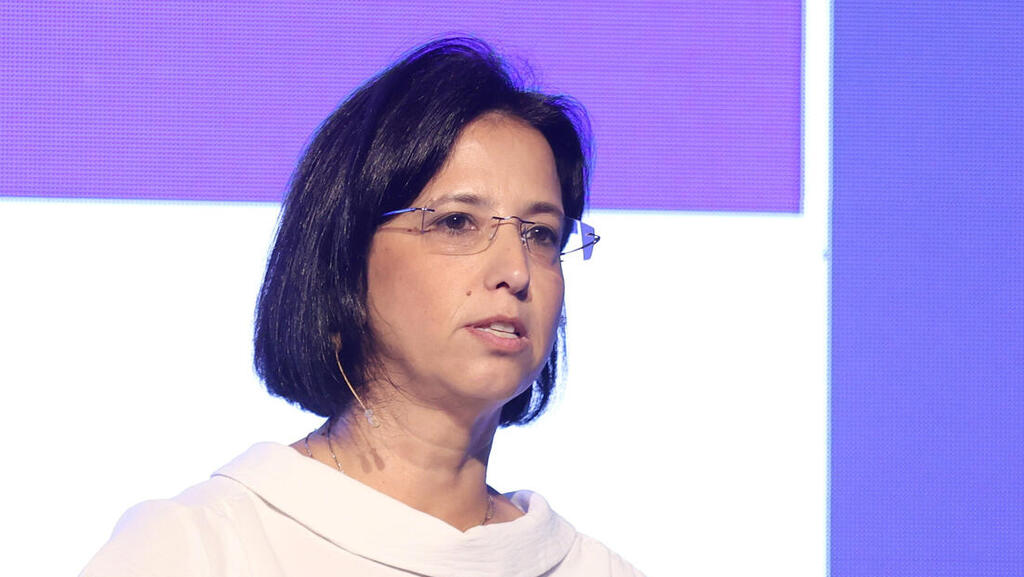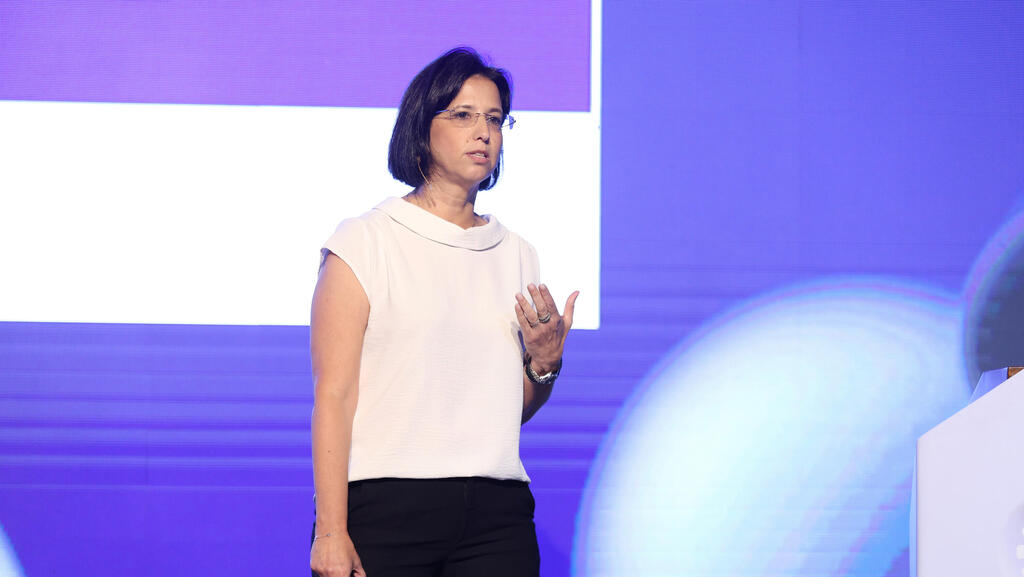
"Companies need to get back to basics in order to ensure stability"
Liat Shuv, Head of business division of Bank Leumi, offered an assessment about the financial landscape at Calcalist and Bank Leumi’s National Economic Conference
"Companies know how to adjust to the new interest rates and will be able to deal with an interest rate that is not zero for a long time," said Liat Shuv, Head of business division of Bank Leumi, speaking at Calcalist and Bank Leumi’s National Economic Conference held today in Tel Aviv. She said that the current economic situation is often raised by clients, and that she advises them that they need to be willing to make major changes in order to adapt. “Everything should be on the table - efficiency, investments that need to be postponed or increased. We need to get back to basics in order to ensure the company’s stability and its ability to survive, develop and grow."
"This is precisely the time when management needs to carefully manage their cash flow. They need to closely monitor and manage leverage rates and prioritize the stability of the company, while also responsibly evaluating transactions." Shuv identified several risks that threaten company stability, including "the high interest rate environment, the burden of the cost of living on households, the changing labor market, and Israel’s unique situation.
"Companies must challenge the long-standing assumptions that have guided them. In the current crisis, it is essential to examine which opportunities can be leveraged," she noted.
Related articles:
To what extent do high interest rates demand changes on the part of the companies? Once again, the risks associated with interest rates have been demonstrated in the collapse of SVB. Many Israeli high-tech companies held accounts with SVB. Shuv said that Bank Leumi “managed in a short time to return a billion dollars back home to the bank's customers."
"When we \[Leumi\] decided to expand our operations in the U.S., we chose to merge with an American bank - Valley National Bank. Our strong partnership with Valley, currently one of the top 30 banks in the U.S., is a significant part of the growth journey we embark on with every company we support in their overseas activities. In the current situation, companies should select a banking partner who is a stable, long-term player, capable of providing peace of mind and the necessary solutions throughout all stages of the growth journey.”
Shuv said that we can look to recent history for some perspective. "We haven't always lived in a zero-interest environment. When I began my career in the late 1990s and early 2000s, interest rates were significantly higher compared to today's rates (slightly over 10%). If we look back, we can see that we successfully managed the economy in a stable manner even when interest rates were higher than they are today.
"Zero interest rates had consequences. We witnessed rising real estate prices, astronomical issuances, national infrastructures, and high-tech advancements. Then the coronavirus arrived and disrupted everything. The pandemic severely impacted some sectors while favoring others. However, it universally instilled an understanding that no organization, regardless of its strength, is immune to change. It is crucial to know how to adjust quickly and effectively."
Once again, she provided a somewhat pessimistic forecast, stating that "even when the interest rates decrease, they won't decline as rapidly as they increased, and we will likely not see zero interest rates in the coming years."
